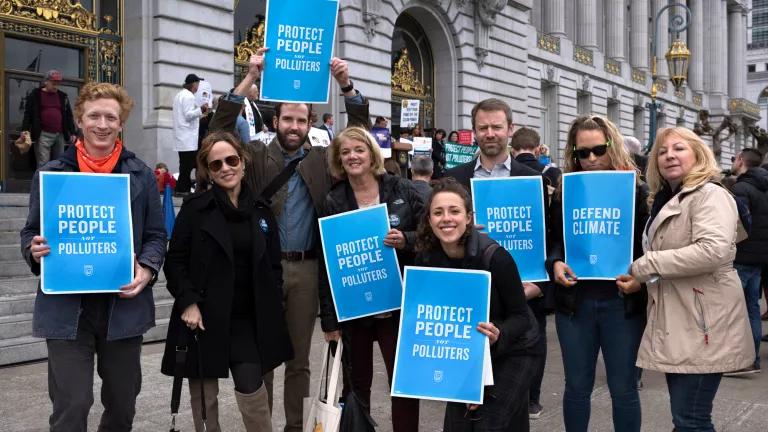On Friday, NRDC and 11 other environmental organizations sent a letter to members of the Pennsylvania House of Representatives asking them to vote against House Bill 965, a radical attempt by the General Assembly to seize power from the executive branch by imprisoning proposed state regulations in legislative committees. As I write, HB 965 is scheduled for a vote on Monday, October 19.
In a previous blog, I described how HB 965 (and its counterpart in the Pennsylvania Senate, SB 562) would give "standing committees" of the General Assembly -- e.g., the House and Senate Environmental Resources and Energy Committees -- the power to repeatedly delay and even block Pennsylvania's Independent Regulatory Review Commission (IRRC) from voting on proposals to update state regulations.
To understand why this is such a big deal, you need to understand what IRRC is, and understand the current role of the General Assembly in regulatory "rulemakings."
In Pennsylvania, there are two main types of state laws: statutes (which start as bills, like HB 965, that become law if signed by the Governor) and regulations (which mainly are developed by executive-branch agencies like the Department of Environmental Protection). You can find Pennsylvania's state agency regulations here. In 1982, the General Assembly passed a statute, the Regulatory Review Act (RRA) that dictates how proposed regulations become law. The RRA created IRRC as a bipartisan, independent body to vet and approve or disapprove proposed regulations, and gave the General Assembly the power to disapprove regulatory packages even if IRRC votes to approve them. If both the Senate and the House pass a "concurrent resolution" disapproving a package, the Governor has a chance to veto the resolution; then the General Assembly can try to override the veto.
For more than 30 years, this bipartisan process has given the legislature a robust -- some would say already too robust -- role in the making of executive agency regulations. HB 965 would inflate the power of legislative committees even further by enabling them to repeatedly "further review" regulatory proposals before IRRC ever votes. The result? A handful of legislators could unilaterally hold up rulemakings -- for instance, the DEP's pending Chapter 78 gas drilling regulations, or future federally required standards to implement the Clean Power Plan -- maybe long enough to force their invalidation. Indeed, small groups of lawmakers could use HB 965 to block regulatory updates across the entire spectrum of state agencies -- from the Department of Heath to the Department of Agriculture.
Not only is this legislative power-grab because unecessary (since the General Assembly can already vote to disapprove regulatory proposals) -- there's a good chance it's unconstitutional (as violating the doctrine of "separation of powers" betweeen the legislative and executive branches of government). For all these reasons, NRDC and most every other environmental organization in Pennsylvania oppose HB 965.
If you follow the business of legislation, you'll inevitably comes across a quote, often attributed to the 19th-century statesman Otto von Bismarck, that likens the making of laws to the making of sausages. The idea is that however much we need laws (and however tasty we find sausages), it is highly unappetizing to watch either being made.
If HB 965 passes, we'll have to add a new metaphor to the state's lawmaking glossary: taking hostages. Under HB 965, legislative standing committees could become black sites for the detention of important regulatory updates needed to protect public health and natural resources -- not to mention small businesses and the elderly. That's bad for the environment and bad for democracy. (And it's why citizens should urge their Representatives and Senators to vote against HB 965).



